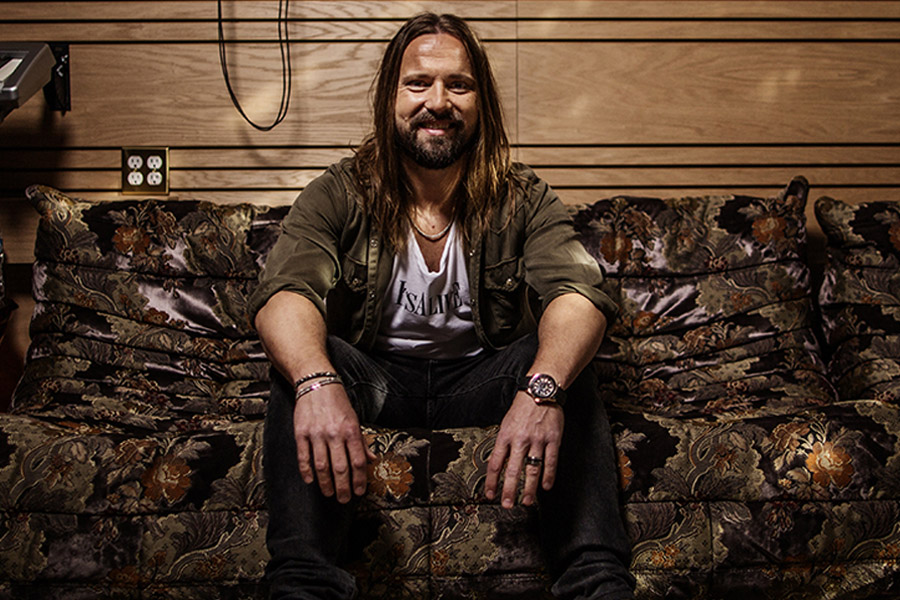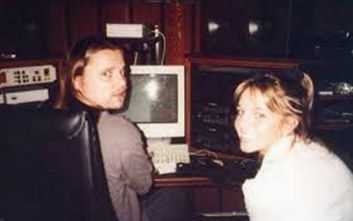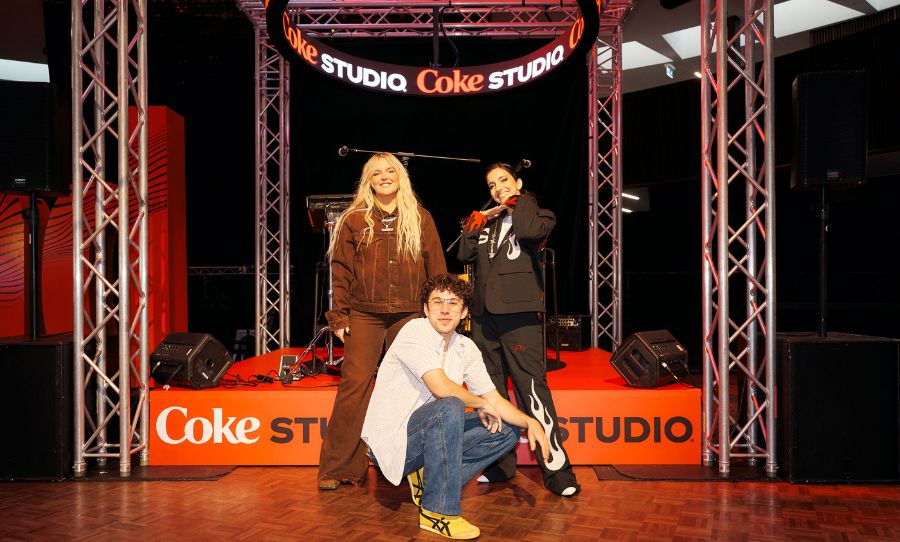The name Max Martin might not be overly familiar to you, but you’ve definitely heard his music. About 100 billion times.

Max Martin – the mastermind behind the biggest pop hits of the last two decades – has given his first interview in 16 years.
The Swedish producer is the man behind a ridiculous amount of hits by artists ranging from Britney Spears, NYSNC and The Backstreet Boys in the 90s, to modern pop darlings like Katy Perry, Taylor Swift and The Weekend.
Martin has had the third highest amount of Billboard numbers ones (trailing only Lennon and McCartney), with 22 hits taking the top spot. In 2016, Martin won the ASCAP Songwriter of the Year award for the sixth consecutive year and for the ninth time in his career.
He also just won the Polar Music Prize alongside some fairly unsurpassable praise: “In the last 20 years, no composer in the world has written melodies as sustainable or as widespread as those of Max Martin.”
Martin prefers to remain in the shadows, but he recently gave a rare interview following the win – his first in 16 years – where he revealed how to make a pop hit and what it’s like being a super producer.
Here is an excerpt, translated into English from Swedish newspaper Di Weekend:
Why do you never give interviews?
”Because my life is so much easier without the attention. I’m not on social media either. I don’t do anything like that. I meet people who have so many problems related to that kind of stuff. ’People think this or that about me’. But those people wouldn’t have those problems if they, like me, hadn’t read it. I want to keep it simple.”
What characterizes a great pop song?
”Well, I can only say what I think. I think that a great pop song should be felt when you hear it. You can hear songs that are technically great, songs that tick all the boxes. But for a song to be felt, you need something else. It’s incredibly important to me that you remember a song right after the first or second time you hear it. That something sticks to you, something that makes you feel: ”I need to hear that song again”. That’s fundamental. Something you want again. And again. ”
Your songs are deceptively simple. When you’ve listened to a song four-five times: there needs to be stuff left to discover that makes the song last over time.
”Exactly. You must be able to have more than one favorite part in the same composition. First out, you might like the chorus. Then, once you’ve grown a little tired of that, you should long for the bridge… Dagge always said: ”After just one second, you should be able to recognize the song.” He brought that way of thinking with him from his days as a DJ. In order to keep people on the dance floor as you switch songs, you should never leave people guessing. You should be able to hear right away what’s coming.”
And how do you achieve that? Through the sound?
”It differs from case to case. There shouldn’t be too much information in the overall sound. I work a lot on getting it all as clear and distinct as possible. There should never be too many new elements introduced at the same time. One at a time. Like in a movie. You can’t introduce ten characters in the first scene. You want to get to know one before you’re ready for the next.”
This might be a really hard question, but how, exactly, do you build a song?
”All these questions are really hard!”
Do you work chronologically – do you begin with the intro?
””Again, it depends. Lately, I’ve written a lot of music where there’s already a set background. There’s already a completed track. In those cases, it’s more about working with the dramaturgy of the melody. It should never get repetitive. I like it when a song is like a journey, building up along the way. That they start out smaller than they end. Along the trip, you add elements that make the listener less likely to tire. Then, at the end, euphoria.”
Max Martin thinks for a bit before adding:
”That’s really true for all songs. If you listen to the first, second and third chorus of a song, they don’t sound the same. It’s the same melody and all that but what really happens is that the energy changes. It’s all about getting the listener to keep his or her concentration. When I play a song to someone and ask ”So how do you like this?”, I don’t care all that much about what they say. What I really pay attention to is how they act, their body language.
People who lose their concentration give themselves away very quickly. If they start fiddling with their phones as the second verse kicks in, there may be something about the tune that wasn’t good enough. Something also happens when I listen as if with other people’s ears. I get nervous and think to myself, ’Shit, this part is a bit too slow’.”
Each and every artist I’ve talked to about the way you work, from Britney and Brian & AJ from Backstreet Boys to Katy Perry to Pink, all mention how intensely you work on their singing. The vocal element seems to be of incredible importance to you.
””The vocals are always my main concern. As a producer, I’m very present whenever we record the vocal track. Some producers let technicians handle that part, while they themselves chill out on the couch. But I like to be there myself, handling everything on the computer myself. I want to know exactly what went on and I need to be able to recall it all. Singing involves a great deal of psychology. If the artist isn’t having a great day or finds it all boring. My role becomes that of a coach. Getting the very best out of the artist. Helping them perform at their very best when it’s game time. One way to get them there is to bring them out of their comfort zones. To coach them a little, get them to try new stuff.”
”Yes. I’m simply not musically equipped for jazz, but I love listening to it. I love Chet Baker. It’s driving my daughter crazy. ”Oh no, not Chet Baker again. She’s heard me play his music so much that by now she knows all his songs.”
Read the whole article here. It’s a super interesting read.



